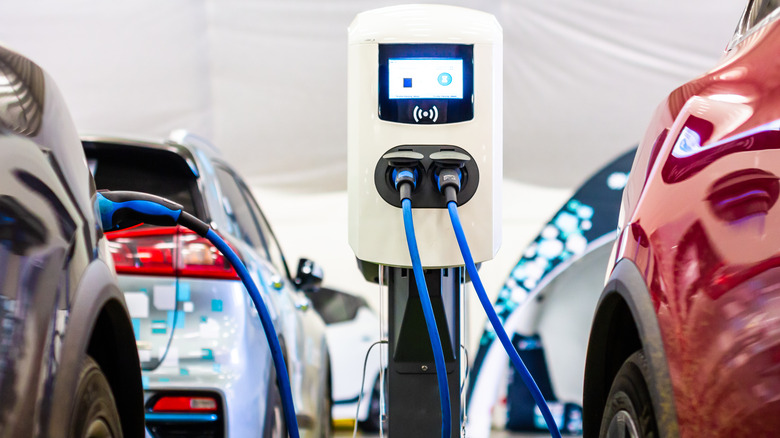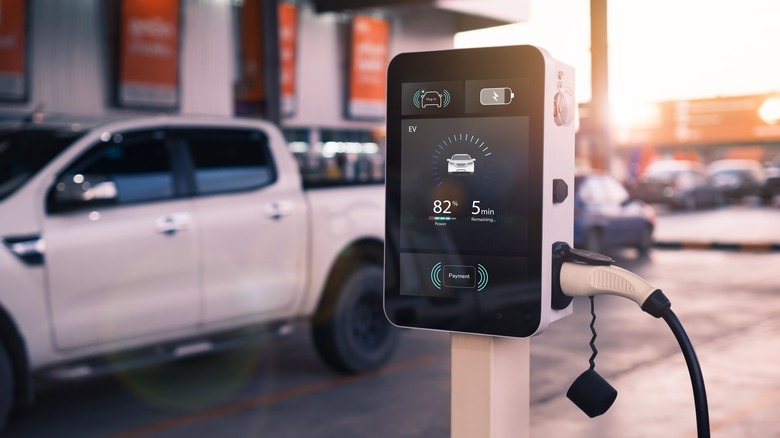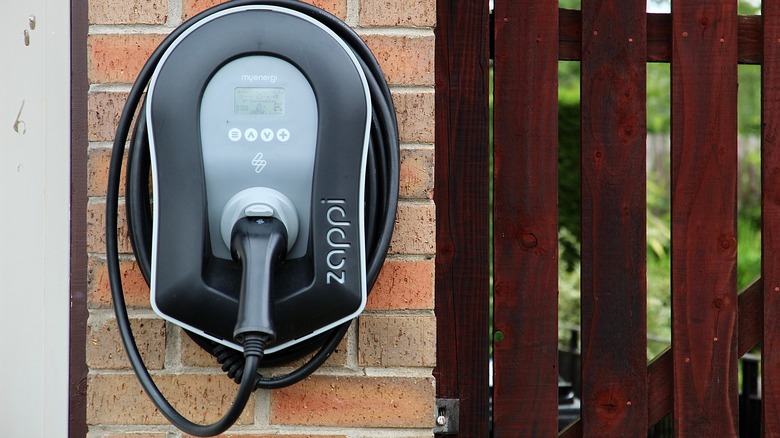The 3 Questions Electric Car Buyers Should Ask Their Power Company
The world is shifting towards sustainable energy to fight climate change. In fact, the U.S. government has enforced policies to ensure that at least 50% of new vehicles sold in 2030 will be electric in an effort to cut down carbon emissions. If everything goes according to plan, most countries and automakers will have shifted to 100% electric vehicles by 2040, per the COP26 declaration. In other words, buying an electric car is not a question of "if," but "when."
At the moment, at least 2 million electric vehicles have been sold in the U.S., according to Electrek. It's not a big number, but if you consider there were less than 20,000 EVs in the U.S. over a decade ago, the growth rate is impressive. We also conducted a survey, and at least 19% of the respondents said they're likely to buy an electric vehicle — There's a good chance the number will increase in the next few years.
For those that already own an EV, or if you're planning to buy one, you could reduce the cost of owning your car significantly if you have the answers to these three questions:
Is there a tariff or rate specific for electric cars?
According to BloombergNEF, a few utility companies in the U.S. such as Consolidated Edison Inc., PG&E Corp., and DTE Energy Co. offer discount tariffs for electric cars. Most power companies have cheaper electricity prices during off-peak hours — This is usually when the demand for electricity is low. This means that even if your power company doesn't offer a special tariff for electric cars, you can still cut down your electricity bill by charging your EV during off-peak hours.
Of course, the off-peak hours could vary depending on where you live. For instance, if you're in the Eastern Time Zone, the off-peak hours are usually between 6 p.m. and 2 p.m. the next day, at least during the summer. But if you're in the Mountain Time Zone, most power companies will have off-peak hours between 11 p.m. and 8 a.m. (via CNET). In most places, you can reduce your electricity bill by charging your electric car between 11 p.m. and 5 a.m. when there is a lower demand for electricity. However, make sure you confirm the off-peak hours by asking your utility company.
Once you've figured out the off-peak hours in your area, you can schedule your electric car to charge at that specific time. If your EV charger or electric car doesn't have an option to schedule charging during off-peak hours, you could use smart plugs.
Another way you could save money is by looking up if the manufacturer of your electric vehicle offers complimentary charging deals. Some electric vehicles like Cadillac Lyriq, Audi e-tron GT, BMW i4, and Lucid Air offer limited free charging on specific charging networks (via Edmunds). Similarly, electric vehicles such as the Hyundai Nexo and Toyota Mirai that use hydrogen fuel offer customers complimentary fuel up to $15,000.
Are there local rebates or incentives for people buying electric cars?
The Inflation Reduction Act dictates how many tax rebates or incentives you qualify for when buying a new or used electric car. It replaced the previous tax credit laws after August 16, 2022. Per the Inflation Reduction Act, you can qualify for a federal tax credit of up to $7,500 if you buy a new electric car. However, if you buy a used electric car, you can get a tax credit of up to $4,000.
Here is the catch: all electric vehicles must be manufactured or assembled in North America, including the batteries, to qualify for the full tax credit. Also, the electric vehicles that qualify for the tax incentive have a price limit. More succinctly, if you're buying an electric pickup truck, SUV, or van and you want to qualify for the tax credit, it shouldn't exceed $80,000. But if you're buying a sedan, the price cap is $55,000. If it's a pre-owned EV, you will be considered for the tax refund if you bought it for $25,000 or less.
Beyond that, most states offer rebates or incentives if you're buying a new or used electric car. For instance, if you're in Delaware, Massachusetts, Rhode Island, Oregon, New Mexico, or Colorado, you could qualify for a state tax incentive of up to $2,500, according to Kelley Blue Book. Most likely, your state offers local tax rebates or incentives if you buy used or new electric vehicles.
Is there a discount or subsidy for installing a home EV charger?
The Inflation Reduction Act doesn't just offer tax credits for electric vehicles — You can also claim tax discounts if you're installing home EV chargers or solar panels. According to the "Alternative Fuel Refueling Property Credit" section, if you install a home EV charger, you can reduce the total cost by 30% if you claim the tax credit. Bidirectional chargers that you can install to source power from your EV to your home in case of a grid outage are also covered in the Inflation Reduction Act. However, the tax credit for installing a home EV charger is limited to $1,000. But if it's a business installation, the maximum tax credit is $100,000 starting January 2023 (via Kiplinger).
What's more, you can claim a 30% federal tax credit after installing solar panels. This means that if you're installing a product like the Tesla Powerwall, you can reduce the total cost by 30%. The tax incentives stipulated in the Inflation Reduction Act for installing home EV chargers and solar panels will be valid until 2032.
Most states also offer tax incentives for installing home chargers and solar panels – If you own an electric vehicle, you could take advantage of state and federal tax credits to cut down your costs.



